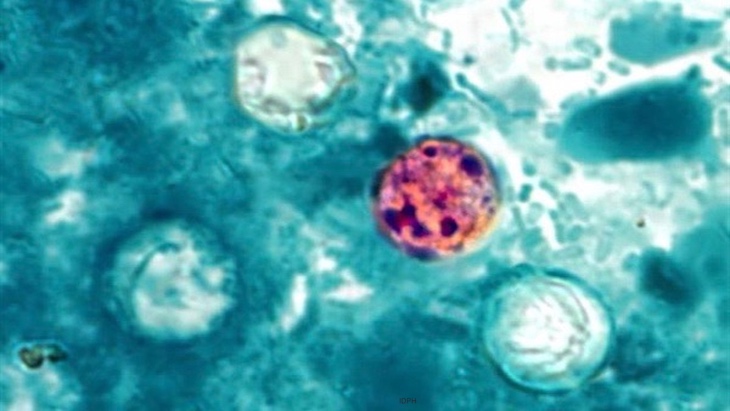A cyclospora illness spike in New York city have raised concern among public health officials. More than 90 cases have been reported in that city since January 1, 2019, compared to 56 cases in in 2018, and 43 cases in 2017 during the same time period.

Since July 1, 2019 alone there have been 40 cases diagnosed and reported to the New York City Health Department. About 30% of those patients have traveled outside the U.S. two weeks, mostly to Latin America, before they got sick, which is the typical reason people contract this infection. The cyclospora parasite is endemic to tropical and subtropical regions around the globe.
Investigators are looking at the 70% of cyclospora cases who did not travel outside the country to see if there is a possible common food source. New York City clinicians should be on the alert for patients who present with diarrhea illnesses. This illness requires specific testing that is usually not performed as part of a routine examination.
There have been cyclospora outbreaks throughout the United States during the summer months in the past few years. Last year, just two outbreaks sickened almost 800 people. More than 500 were sickened after eating McDonald’s salads, and 250 were sickened after eating Del Monte vegetable trays purchased at Kwik Trip stores in the Midwest.

You can contact food safety attorney Fred Pritzker for help by calling 1-888-377-8900.
There is no indication that officials have zeroed in on a specific food or restaurant in this cyclospora illness spike. In the past, cyclospora outbreaks have been linked to raspberries, mesclun lettuce, cilantro, basil, and lettuce.
This infection is not spread person-to-person. The oocyst is shed in feces, which then contaminates food, usually in the field. The oocyst must sporulate, or mature, in the environment for a few weeks, then it becomes infectious. The incubation period in people, after they have ingested the oocyst, is about 1 to 2 weeks.
Symptoms of cyclosporiasis include watery and explosive diarrhea, weight loss, bloating, gas, and loss of appetite. If this infection is not treated, it can continue for months and recur without warning. It is treatable, but with sulfa-based drugs. There is no effective treatment for anyone who is allergic to sulfa. All cyclospora illnesses must be reported to the health department.




